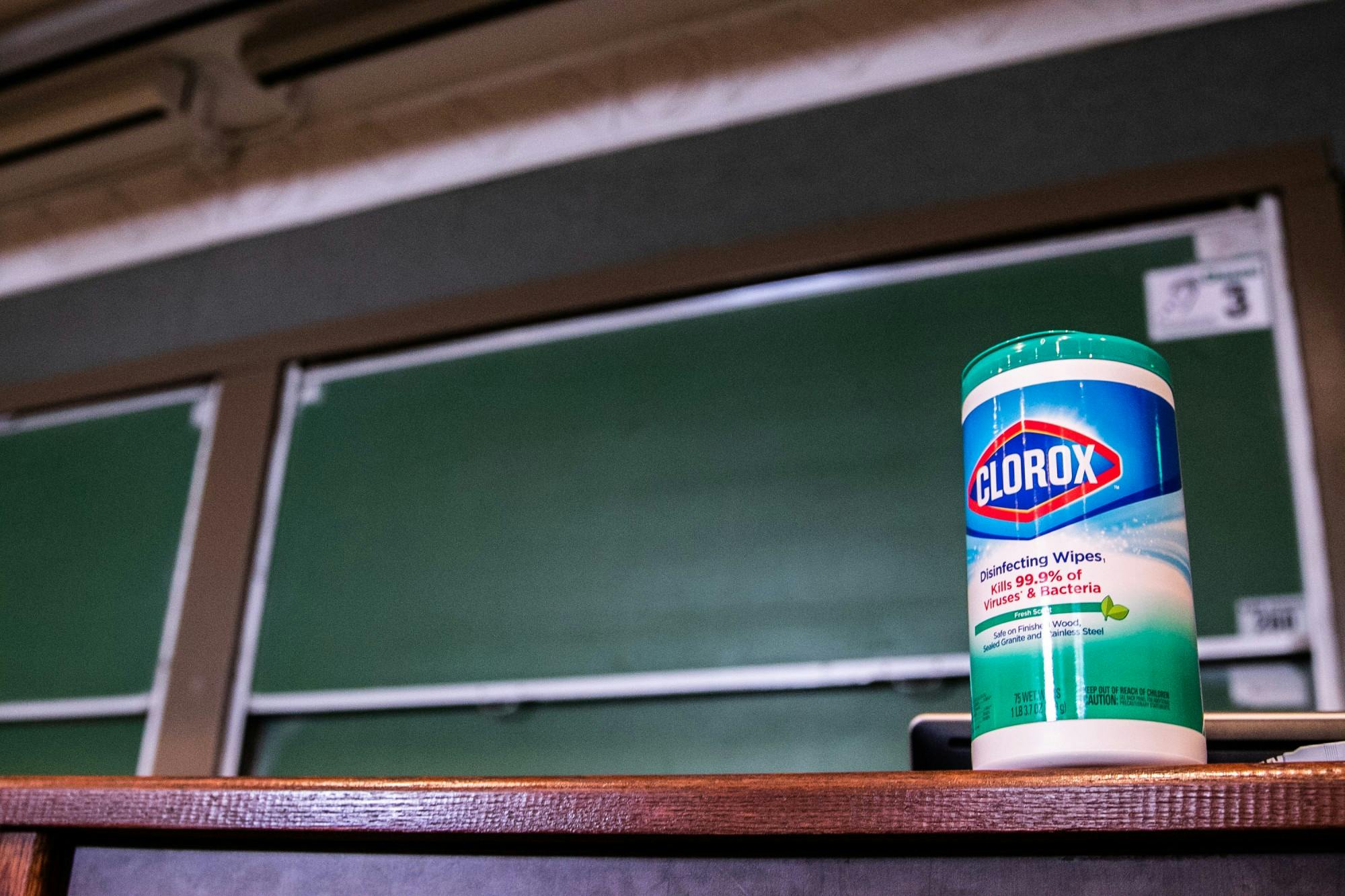On April 2, Gov. Gretchen Whitmer signed an executive order suspending K-12 in-classroom education for the remainder of the school year. With classes suspended through June, parents whose children receive special education services encounter unprecedented challenges with remote learning.
East Lansing resident Krista Baumann said she wouldn’t be too worried if it were just a few weeks. But since it's going to be for a longer term, she said she is going to have to either figure something out or get assistance from the teacher to plan out activities for her son who has Down syndrome.
"I don't know how they're going to tackle the special therapies for the kids with special needs that are in the school district,” Baumann said. “Even though he is my son, I don't know him as a teacher, so I'll have to get used to it.”
Baumann’s son attends MacDonald Middle School. She said on the last day of school her son came home with worksheets. His teacher was able to get a packet ready for him, which Baumann felt thankful for, so they've been going through those in the meantime.
“He hasn’t been having his speech therapy, which is unfortunate,” Baumann said. “We have gotten, from the superintendent, a lot of updated emails already. So, I know that concrete information is coming. ... It does take a while to get all that figured out."
Okemos resident Cathy Blatnik whose son has been diagnosed with autism spectrum disorder attends Okemos High School. Half of his classes are autism-inclusive while the other half are with the developing peers as a part of his Individualized Education Program, or IEP.
"I think it’s the fact, with his IEP, that he is not getting the interaction with his typically developing peers and the peers in his classroom,” Blatnik said. “The teacher is trying but the IEP is very specific to each child and I think it is virtually next to impossible for the teacher to be able to replicate that at home."
Blatnik said that her son likes routine and structure. So, since the quarantine started, she has been trying to piece together a typical day for him like he would experience at school.
"I find it to be very challenging,” Blatnik said. “I don't really have qualifications to be a special education teacher. And Dominic's teacher is trying, she sent a couple links, she's done a couple videos but it really does not replace what he would be learning in school."
Blatnik is a member and secretary for Mid-Michigan Autism Association, an organization formed by the parents with kids who have autism. The organization’s mission is to improve the quality of life for individuals on the autism spectrum and their families by providing support, resources and opportunities within the mid-Michigan community.
At the moment, Blatnik said parents are enjoying free access to a lot of resources being offered to them, Scholastic’s “Learn at Home” program being one of them. Michigan State University has also initiated the “Spartan Caregiver Support” program to help caregivers of people with autism.
"Personally, I'm glad they're shut down,” East Lansing resident, Jennifer Norman said. “My daughter is considered high-risk because she does have some physical issues that put her in a high risk category. So if she were to catch this COVID-19 virus, she would be very much compromised."
Norman’s daughter attends Heartwood School in Mason, Michigan. The school serves students with special education and services, whose needs can't be fulfilled elsewhere in Ingham Independent School District (ISD), according to Norman.
"It's been a challenge for sure," Norman said. “She would be better off if she had access to her occupational therapy and her speech therapy, and if she were able to go on doing the things that she normally does at school. But I understand the risk involved in providing those resources to her and I think it’s a sacrifice we’re willing to make for a short term.”
Norman said she feels more comfortable with her daughter not being out in public places and being exposed to other people. Her daughter’s biggest challenge is social isolation and since one of the major goals for her education is to work on social interaction, it’s been very challenging for her to not have any interaction with peers.
“We're struggling at home but I am okay with the decision," Norman said. “The last couple days, we started using FaceTime ... with her friends from school, the family friends and grandparents ... to try and get some sense of normalcy.”
Support student media!
Please consider donating to The State News and help fund the future of journalism.
Discussion
Share and discuss “Remote child special education brings hardship to Ingham County parents” on social media.








